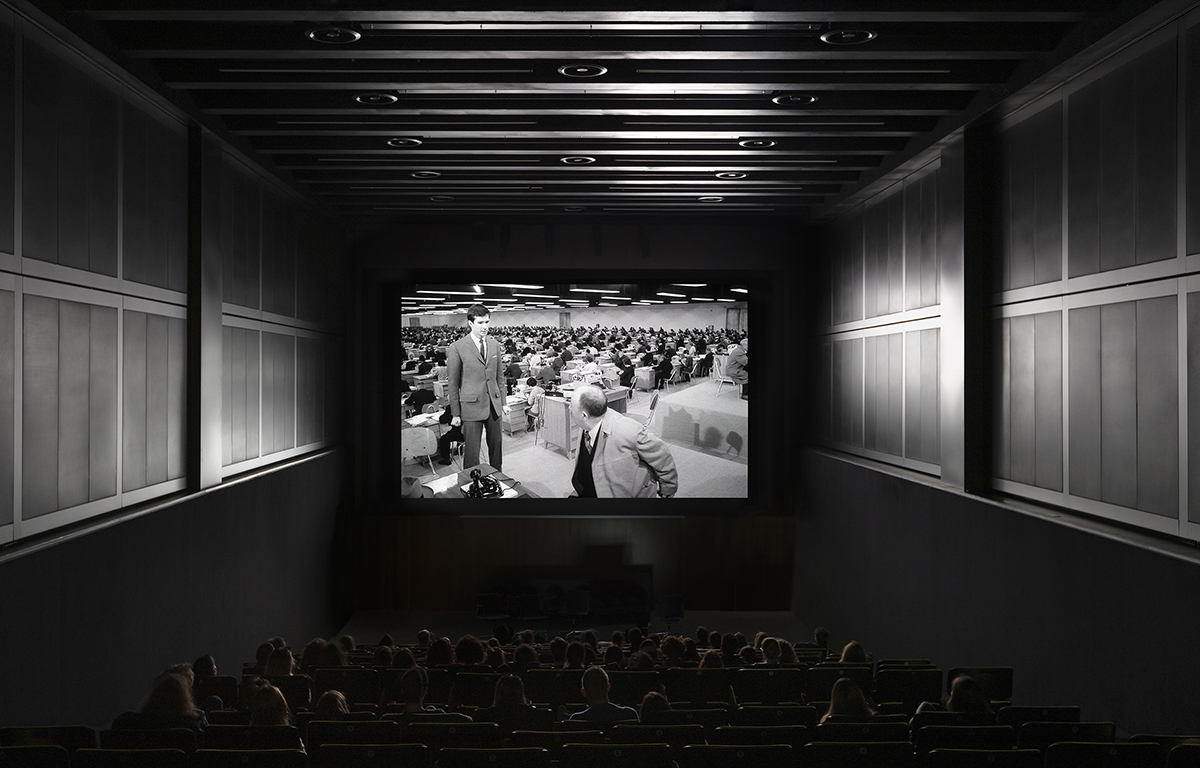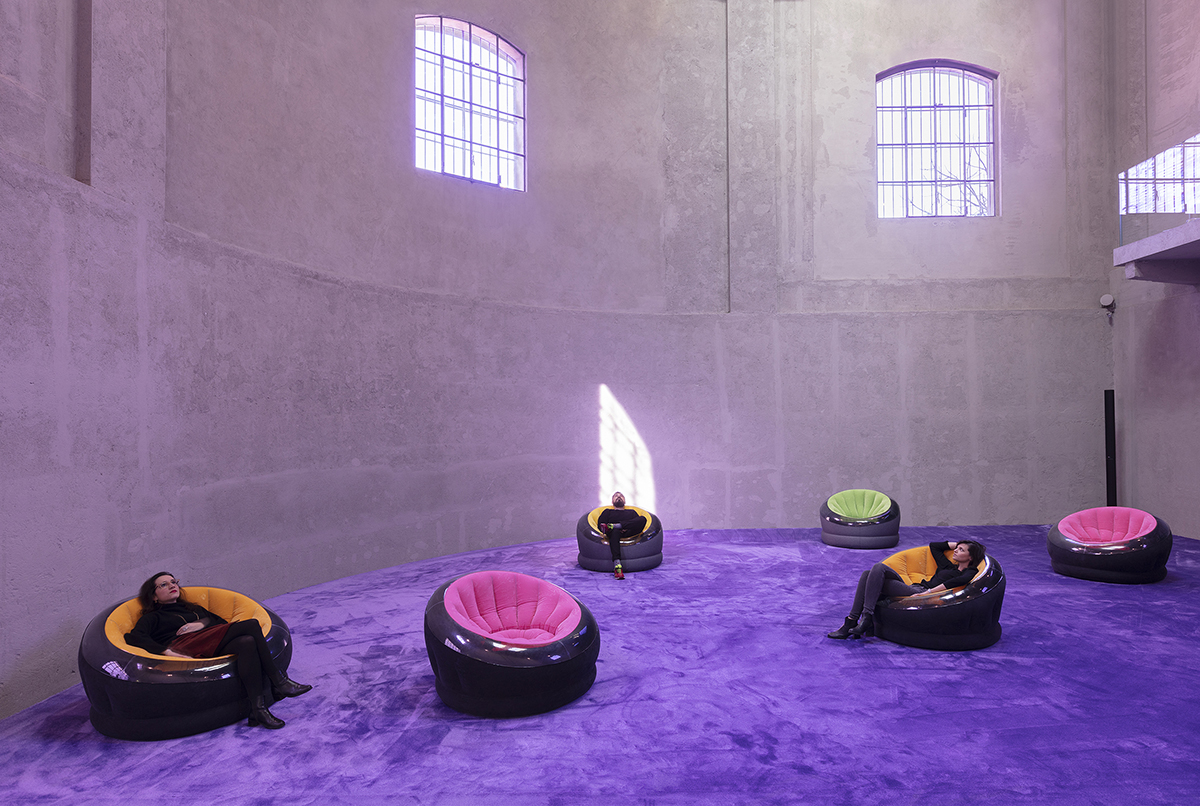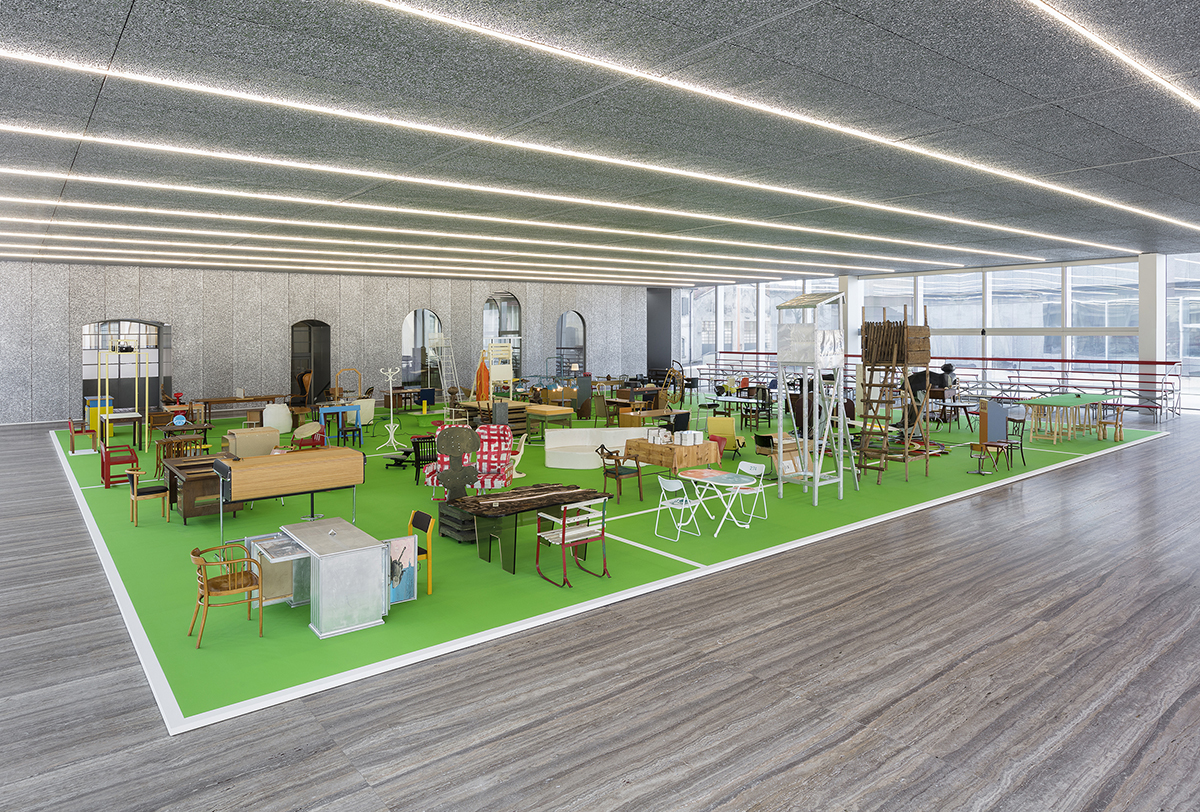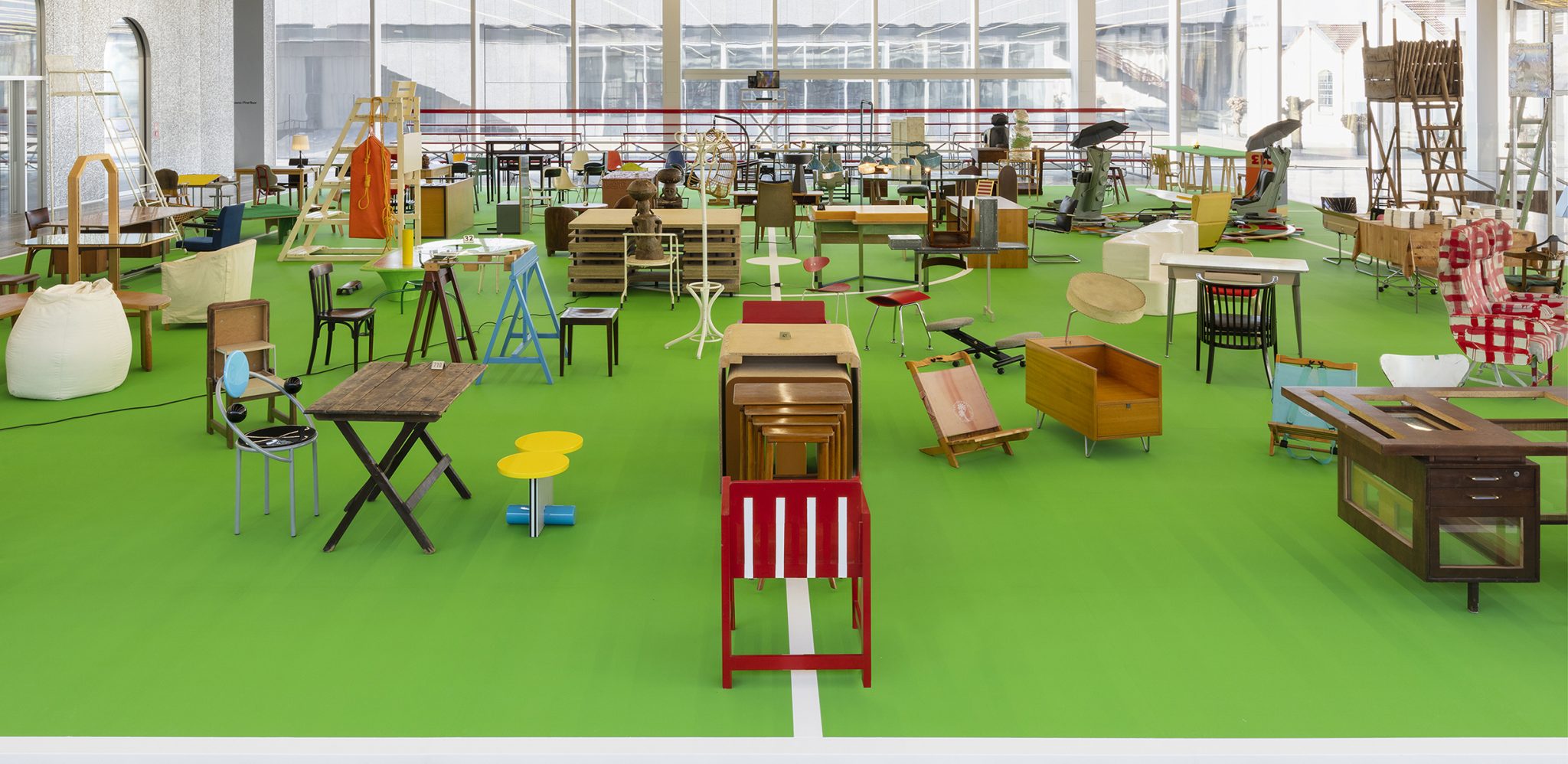K – now with an extended run at Fondazione Prada, Milan – brings together works by Martin Kippenberger, Orson Welles and Tangerine Dream
K brings together an installation by Martin Kippenberger (The Happy End of Franz Kafka’s Amerika, 1994), a film by Orson Welles (The Trial, 1962) and an album by Tangerine Dream (Franz Kafka – The Castle, 2013). The title refers primarily to Kafka, whose unfinished novels Amerika, The Trial and The Castle (all posthumously edited by Kafka’s friend Max Brod and published between 1925 and 1927) inspired the three works on show – albeit with plenty of poetic licence. In his catalogue introduction, curator Udo Kittelmann describes the exhibition as ‘a story, not unlike a parable, about “the darkest concerns of human life”’ (a quote from Walter Benjamin’s essay on Kafka), its structure a triptych or altarpiece whose parts are ‘presented entirely separately from one another (…), both in space and time’.

Kippenberger’s The Happy End… is installed in Fondazione Prada’s main ‘Podium’ space, encased in spectacular glass walls. The installation represents an imaginary conclusion to Kafka’s story, whose protagonist Karl Rossmann applies for a position in, as Kafka describes it, ‘the largest theatre in the world’ (that is, rampant American capitalism), after reading a poster proclaiming: ‘All welcome! Anyone who wants to be an artist, step forward!’, only to find himself engulfed in never-ending interviews for hapless jobs. On a well-lit green soccer field, flanked by bleachers and referee high-chairs, Kippenberger recreates the imaginary dialogues with an orderly grid of threesomes, each comprising an empty desk and two chairs of various designs and epochs, to suggest a multitude of discourses across time.

Orson Welles’s claustrophobic and darkly humorous masterpiece, starring Anthony Perkins as Josef K, is screened in the foundation’s huge in-house cinema. In an iconic sequence, echoing Kippenberger’s work, K walks through a vast office filled with rows of typing clerks at work at their desks; Welles shot it in the halls of the Zagreb Fair, with 850 identical desks and 850 extras. The movie, too, ends on a slightly brighter note than the novel: instead of being executed ‘like a dog’, K bravely laughs in the faces of his slayers. Finally, music by Tangerine Dream is played on a loop in the twin ‘Cisterna’ spaces, fitted with purple carpeting, purple lights and comfortable loungers, as if to recreate the atmosphere and tint of ambient music, the genre pioneered by the legendary Krautrock band since the early 1970s.

After the drastic measures of social distancing induced by COVID-19, Kittelmann’s remarks on the topicality of Kafka’s ‘trilogy of loneliness’ and the ‘widespread fear of an epoch-making transformation of an unknown scale’ inevitably stand out. And yet, the impossibility of visiting K after a certain point reveals another aspect of the show’s cross-disciplinary approach, strategically merging three strands (art, cinema, music) of the foundation’s programme. K’s potential to alter the temporality of an average visit works also in the present tense, when all contents are forced to migrate online. Welles’s film and Tangerine Dream’s album are only a click away from everybody’s devices, and I have played them on loop to keep me company while writing, bent over my home desk like millions of other people across the globe. The final track of Franz Kafka – The Castle is titled A Place of Mercy, described thus in the sleeve notes: ‘It is not necessary to leave one’s house. Remain at your desk and hark. Don’t even hark, just wait. Don’t wait, stay completely quiet and alone. The world will open itself up for its decipherment, it is incapable of anything else, you have triumphed and at last it will wind rapturously on the floor before you.’ The happy end indeed?
Fondazione Prada, Milan reopens on 5 June. K has been extended until 26 October.
